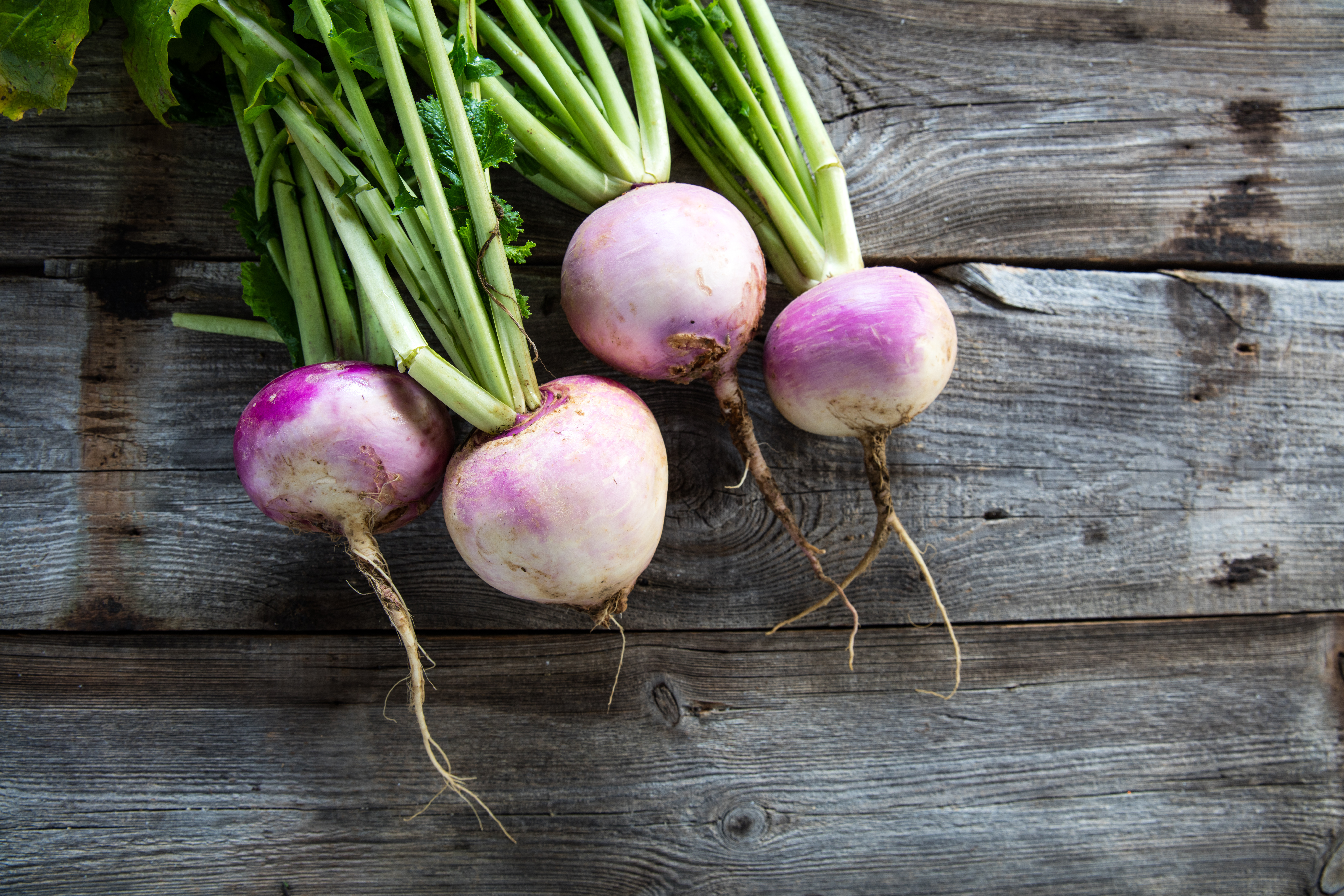Yes, turnips technically belong in the same cruciferous family as Brussels sprouts, cabbage and bok choy — a category of crunchy veggies that new research associates with a lower risk of breast cancer recurrence and mortality. Vanderbilt University researchers last month reported on findings which compared dietary intake data of 4,886 breast cancer patients (ranging from 20 to 75 years old) with recovery and survival rates. Those women with the highest intake of cruciferous vegetables were 42% less likely to have their cancer return– and 28% less likely to die from the disease.
Previous research has highlighted potential benefits of other cruciferous superstars — broccoli compounds targeting breast cancer stem cells, juiced cauliflower suppressing cancer cell growth, and increased cabbage intake linked to lower risk of developing breast cancer.



